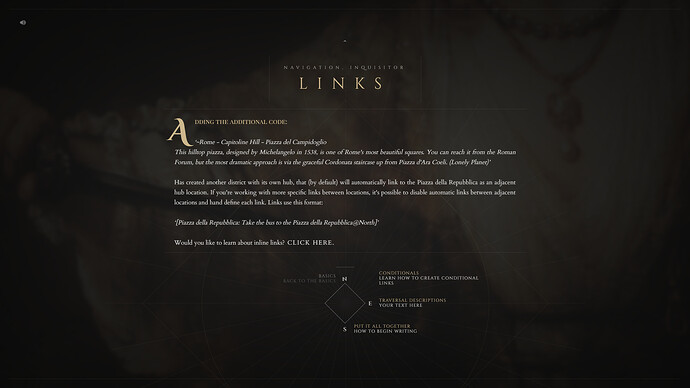This has been up on Github a while now, and I’ve just pushed the build I used for my commercial Steam release of To Burn in Memory. I’d love to see people using it, so I’ve included a little tutorial world you can ‘explore’ to learn basic use of the toolset. It doesn’t cover all of the functionality available, but I’d love feedback on what areas people would like expanding on.
Okay, so what makes Inquisitor unique? When I started writing To Burn in Memory I was using Twine, but found the choice system to be more suited towards linear narratives than traditional phraser style worlds with locations and items. Inquisitor is a phraser-less hybrid of these styles, usable in both a browser format and as a standalone app, using Node.js or Electron. Some features:
- Cardinal navigation.
- A fully dynamic ambient soundtrack system that evolves based user choices.
- A modern user interface.
- Support for graphical elements, including item icons and backgrounds.
- Scripting can be written in any text editor, with simple syntax and support for complex choice systems and even procedural locations, descriptions and logic.
You can find it here: https://github.com/Orihaus/InquisitorIF
